In computer networking, a port is a physical communication endpoint where information is sent and received. At the software or operating system level, it is a logical concept that identifies a specific network service.
Ports are like openings or entry points such as doors that allow access into a house, and services are like the traffic that uses those entry points into the house. Certain services are by default required to use certain entry points (ports) on a computer.
When a service listens on a port, it can receive data from a client application, process it, and communicate a response. For example, the standard port for the Simple Mail Transfer Protocol (SMTP) traffic is 25, 465, and 587. So, if we find these ports open, we can be pretty sure that SMTP service is running or can be run on that machine.
Here is our list of the Best Online Port Scanners:
- NMap Port Scanner Well-known free and open-source online tool for finding open TCP ports and running services.
- DNS Tools A popular free online service that offers a collection of network analysis tools such as port scanners, DNS Query, Traceroute, Ping, among others.
- WhatIsMyIp A popular online service that provides a free and commercial port scanning tool.
- T1 Shopper Αn online telecommunications and ISP marketplace.
- Port Checker Α simple and free online tool for checking open ports on your device.
- DNS Checker Α website that hosts a collection of tools such as DNS check tools, email tools, IP tools, developer tools, network tools–which also includes a port scanner.
- IPVoid Α free service developed by the NoVirusThanks project whose mission it says is to “provide useful tools to troubleshoot network problems and to help in gathering information about IP addresses”
- Hidemy Αn organization that deals primarily on VPN but it also hosts a collection of online tools and services such as proxy checker, anonymity checker, email checker, port scanner.
Why should I scan the ports on my network?
Port scanning is the method used for identifying what ports are open on a target system or network, and the services running on them. It is one of the most popular techniques used by attackers to identify “open doors” on a computer and learn about services that they can exploit in order to gain unauthorized access to the system or network. Once privileged access is obtained, the intruder can carry out malicious acts. For example, SSH normally uses port 22. So if an attacker finds that port open and listening, he knows that SSH is probably enabled on the machine. He can then try to penetrate the system by attempting to bypass or crack the login password.
This is why network administrators and security managers need to carry out regular port scans on their systems and networks to discover and mitigate possible security vulnerabilities associated with the open ports. Knowing which network services are exposed to the outside world is essential for securing the network perimeter. Having more ports open than necessary is considered a security risk, and should be urgently addressed. Port scanning will help you answer key questions such as, what ports are open? And what services and their versions are running on the open ports? You can then use the information to determine if the open ports meet with your organization’s security policy.
Why use an online port scanner?
There are lots of port scanning applications out there that you can use to scan your network. Some have to be locally installed on the target machine, while others are delivered online.
The main advantage of using an online version of a port scanner as against using it on your local machine is that it gives you an external view of your systems as they are seen by an attacker from the Internet. If you do the same scan from your local network you may obtain different results because of various network firewall restrictions.
In this article, we’re going to review the eight best online port scanning applications out there. Hopefully, this will guide you in the process of selecting the right one for your port scanning needs.
The Best Online Port Scanners
1. NMap Port Scanner
NMap port scanner is a well-known free and open-source online tool for finding open TCP ports and running services (including their versions). The scanner allows you to easily map your network perimeter, check firewall rules and verify if your services are reachable from the Internet. NMap port scanner is part of a collection of scan services known as NMap Online. The NMap port scanner is so powerful that even other online port scanners depend on NMap for their own service.
In order to determine if a TCP port is open, Nmap sends packets to the target device and analyzes the responses. It does this by taking advantage of the three-way TCP handshake mechanism—SYN, SYN-ACK, and ACK. Once open ports are found, it goes further to determine the exact type of service (including its version) running on that port.
Nmap evolved from a simple port scanner to a robust tool containing advanced fingerprinting capabilities and a complex scripting engine. It now provides a number of features for probing computer networks, including host discovery and OS fingerprinting. These features are extensible by scripts that provide more advanced service detection, vulnerability detection, and other features.
2. DNS Tools
DNS Tools is a popular free online service that offers a collection of network analysis tools such as port scanners, DNS Query, Traceroute, Ping, among others. DNS Tools can help you answer the questions such as:
- What’s the IP address I am connected to on the Internet?
- Is my computer reachable from the outside through open ports?
- Over which nodes does the connection travel?
- How is the response time of the server?
With DNS Tools port scanner, you can determine which ports or services running on your network or device are reachable outside of your local network. You can do this for multiple ports or single ports. A single port can be verified by using the following format: 208.80.152.2:4444 (the port is separated from the IP address by a colon).
3. WhatIsMyIp
WhatIsMyIp is a popular online service that provides a free and commercial port scanning tool. It also provides other tools (free and commercial) that allow users to perform network lookups such as IP address lookup, DNS lookup, Whois lookup, and more.
WhatIsMyIp port scanner scans your network for open ports. If a port is displayed as open, that means it is open for remote communication and needs to be closed. To use this tool, go to the port scanning section of the site and enter a valid IP address at the top of the page as shown in Figure 3.0. Then select your preferred port scan option and enter the port number(s) as the case may be to begin. Details of the various port scan options are as shown in Table 1.0 below:
| Port Scan Options | Description | How To | Availability |
|---|---|---|---|
| Individual | Scan individual ports one at a time | Select 'individual', enter a valid port number, then click the 'Scan' button to begin. | Free |
| Package | Scan based on pre-made packages and ports contained in the selected package will then be displayed below the dropdown | Select 'Package' and choose a package from the drop-down menu, then click the 'Scan' button to begin. | Free |
| Range | Scan based on a numeric range of port numbers | Select 'Range', and enter a valid starting and ending port number, then click the 'Scan' button to begin. | Gold members |
| Custom | Scan based on your own peculiar needs | Select 'Custom', and enter each desired port to scan on its own line in the text box, then click the 'Scan' button to begin. | Gold members |
4. T1 Shopper Port Scan
T1 Shopper is primarily an online telecommunications and ISP marketplace. T1 Shopper was developed by network professionals for network professionals, and this also makes it a hub for various sets of network tools including an online port scanner.
The tool is capable of scanning individual ports, a list of port numbers, as well as a range of ports to determine if the target device is listening on that port. For now, the tool only supports the scanning of TCP ports.
5. Port Checker
Port Checker is a simple and free online tool for checking open ports on your device. It is a useful tool for testing port forwarding settings on a router, for diagnosing issues with blocked application ports by your firewall or ISP, and for many other security purposes.
Furthermore, if you host and play online games, this online port scanner could be used to ensure that the relevant server port is configured properly for port forwarding so that only allowed participants would be able to connect to your server.
6. DNS Checker
DNS Checker is a website that hosts a collection of tools such as DNS check tools, email tools, IP tools, developer tools, network tools–which also includes a port scanner, among others.
The DNS Checker port scanner checks the most common ports used by Windows services, Ubuntu servers, online games, or other software. With its pre-defined list of all available used ports, you can easily use this tool to check which ports are open on your network or device by simply entering your IP address or domain name. It also allows you to define custom ports for checking if they are open for external requests, so as to prevent any external attacks on your IP.
7. IPVoid
IPVoid is a free service developed by the NoVirusThanks project whose mission it says is to “provide useful tools to troubleshoot network problems and to help in gathering information about IP addresses”. It started out as an IP blacklist checker service but later expanded its services to include more IP and network tools to make it more valuable to Internet users, researchers, and system administrators.
The IPVoid port scanner is a TCP port scanner powered by Nmap. With this tool, you can scan an IP address for open ports, check what services are running on your server such as apache, mail, ssh, FTP, MySQL, telnet, DNS, test if your firewall is working correctly, and view open TCP ports. All it takes is to enter your IP address and choose either to scan all common ports or a custom port.
8. Hidemy Port Scanner
Hidemy is an organization that deals primarily on VPN. But it also hosts a collection of online tools and services such as proxy checker, anonymity checker, email checker, port scanner, and a host of others.
Hidemy port scanner is also powered by NMap and can be used to discover ports that are open on your computer or server, and what services they are running and are responsible for. To check your computer or network, click the “insert my IP address” button next to the scanner form to automatically pick up your IP. Then choose either to scan popular ports or specify your own list of ports. If the result says “Host seems down”, this implies that the network device of the IP address being checked blocks the ping command. However, you are advised not to use this tool to scan servers that do not belong to you.
Conclusion
Using the above online port scanners will help you find open ports on your domain or network. Those online services are easy to use and mostly targeted at SMBs that can’t afford to pay for consultants or external services to monitor their security from outside of the network.
However, please note that if your network or domain is behind a cloud proxy such as Cloudflare or SUCURI, then it may not give you accurate information. As you can see from the reviews, the NMap tool stands out among the rest. If you are looking to learn more about it, check out this definitive NMap guide. If the online tools don’t work for you, you may check out these locally installable port scanning tools.
L’article 8 Best Online Port Scanners est apparu en premier sur Comparitech.


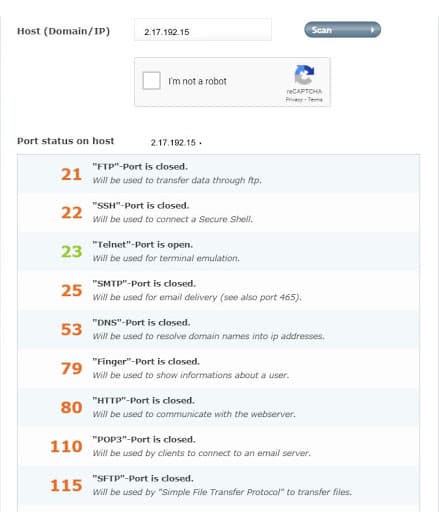

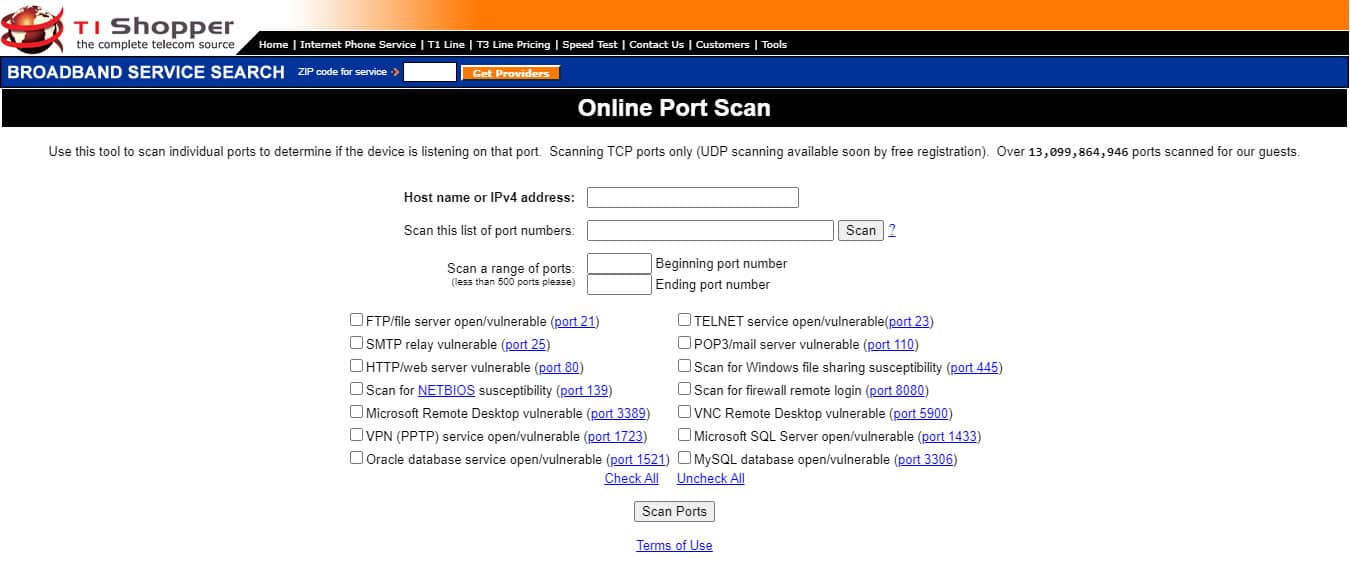
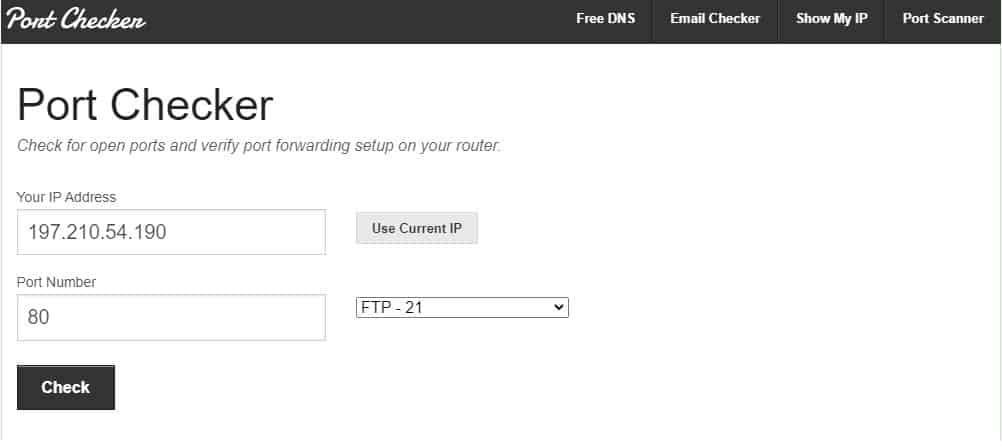
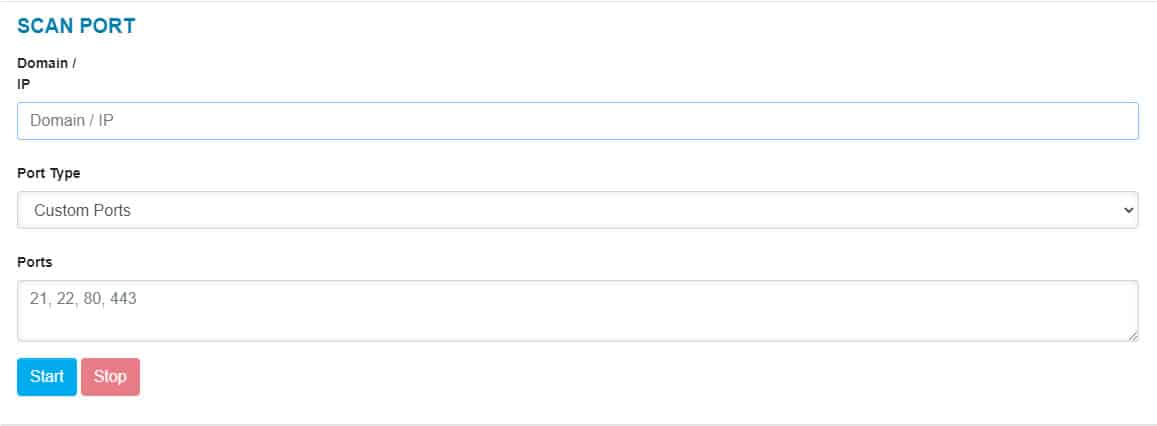
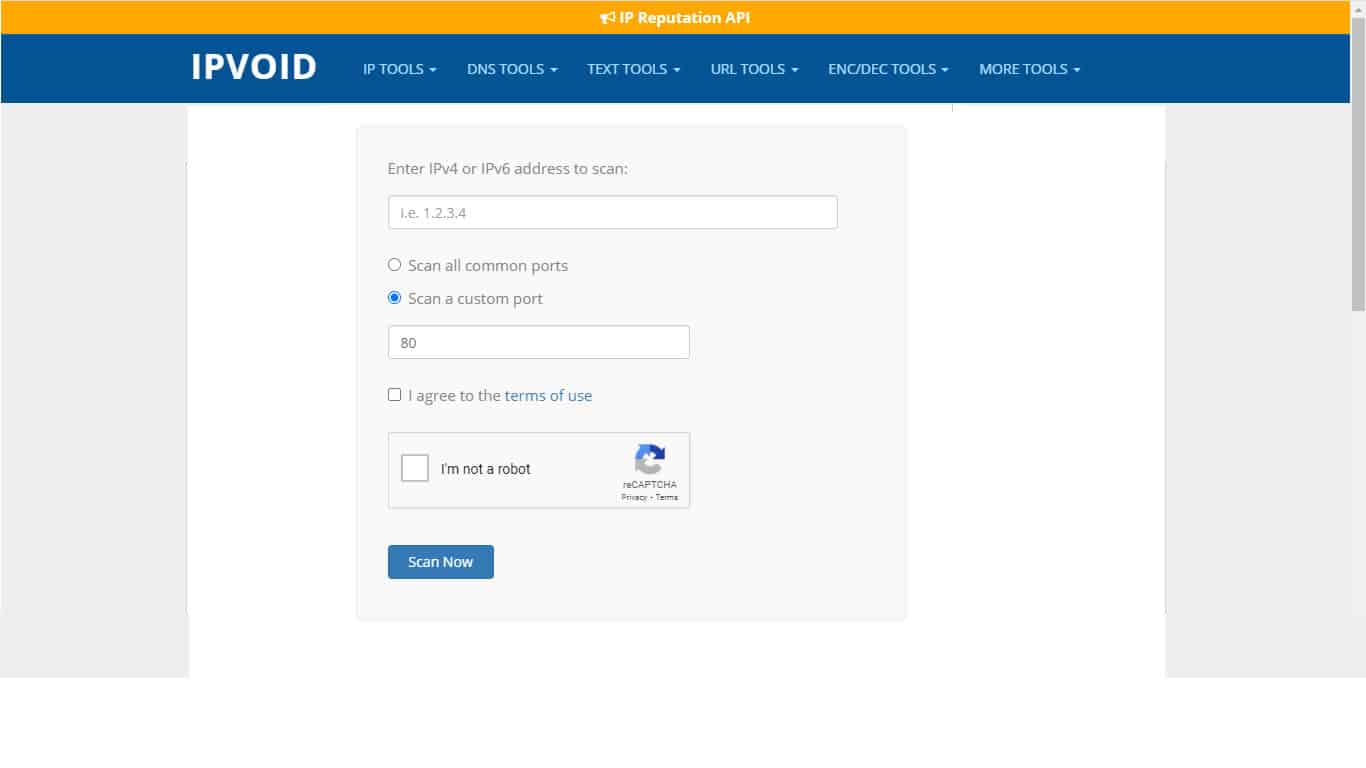
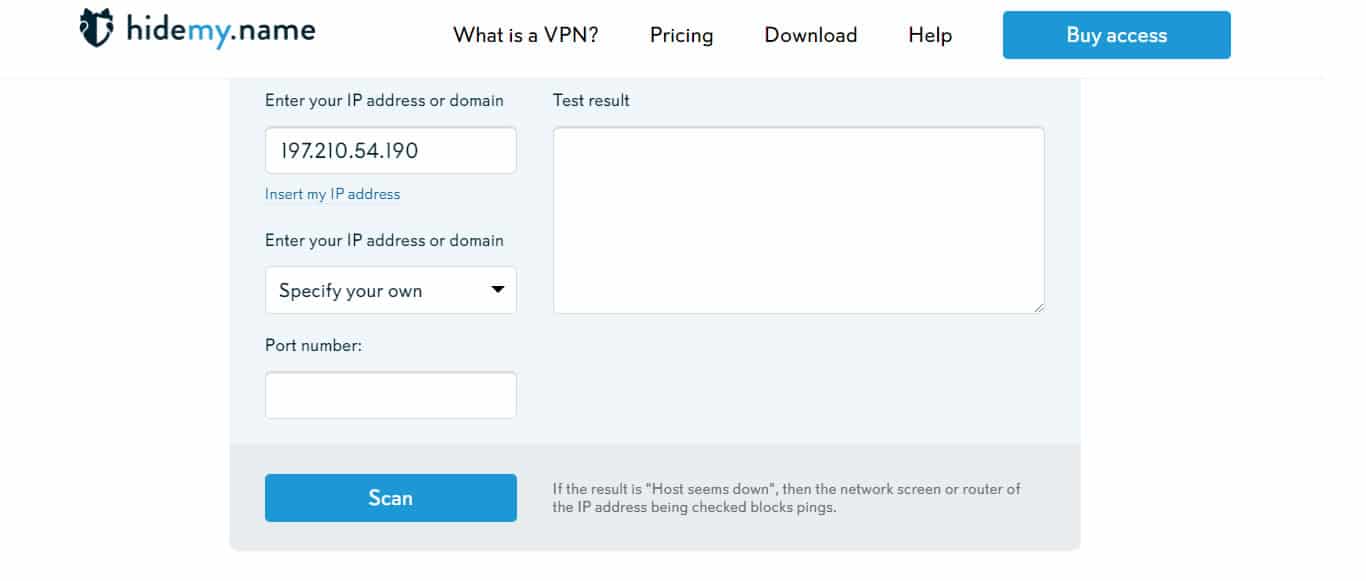
0 Commentaires